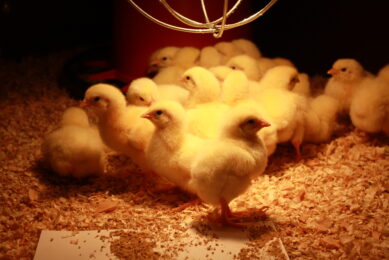FDA: regulating genetically engineered animals
The US Food and Drug Administration on 15 January issued a final guidance for industry on the regulation of genetically engineered (GE) animals under the new animal drug provisions of the Federal Food, Drug and Cosmetic Act (FFDCA).
The guidance, titled “The Regulation of Genetically Engineered Animals Containing Heritable rDNA Constructs,” clarifies the FDA’s statutory and regulatory authority, and provides recommendations to producers of GE animals to help them meet their obligations and responsibilities under the law.
Genetic engineering generally refers to the use of recombinant DNA (rDNA) techniques to introduce new characteristics or traits into an organism. When scientists splice together pieces of DNA and introduce a spliced DNA segment into an organism to give the organism new properties, it is called rDNA technology. The spliced piece of DNA is called the rDNA construct. A GE animal is one that contains an rDNA construct intended to give the animal new characteristics or traits.
“Genetic engineering is a cutting edge technology that holds substantial promise for improving the health and well being of people as well as animals. In this document, the agency has articulated a scientifically robust interpretation of statutory requirements,” said Randall Lutter,deputy commissioner for policy. “This guidance will help the FDA efficiently review applications for products from GE animals to ensure their safety and efficacy.”
The FDA released the draft guidance in September 2008 with a 60-day public comment period, and received about 28,000 comments. The FDA’s Center for Veterinary Medicine (CVM) has been working with developers of GE animals on both early stage and more mature applications.
“At this time, it is our intent to hold public scientific advisory committee meetings prior to making decisions on GE animal-related applications” said Bernadette Dunham, director of CVM.
Safe for food consumption and animal health
The FFDCA defines “articles (other than food) intended to affect the structure or any function of the body of man or other animals” as drugs. An rDNA construct that is in a GE animal and is intended to affect the animal’s structure or function meets the definition of an animal drug, whether the animal is intended for food, or used to produce another substance.
Developers of these animals must demonstrate that the construct and any new products expressed from the inserted construct are safe for the health of the GE animal and, if they are food animals, for food consumption.
The guidance also describes the manufacturer’s responsibility in meeting the requirements for environmental review under the National Environmental Policy Act.
For more information, click here













